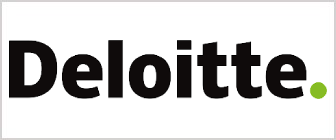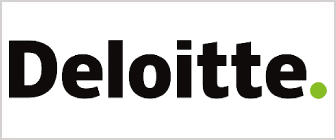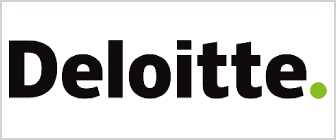Interview with Lilian Kubebea, Africa Tax & Legal Partner and Indirect Tax (Kenya) Leader, Deloitte Africa
What is the most significant change to your region/jurisdiction’s tax legislation or regulations in the past 12 months?
In Kenya, notable and significant changes in the indirect tax area in the past 12 months include:
Value Added Tax (VAT)
- The Kenya government has increased the VAT rate on petroleum products from 8% to 16%.
- A new electronic tax invoice management system has been introduced in Kenya that will enable the tax authority to track the issuance and transmission of tax invoices on a real-time basis.
- In 2022, the Finance Act removed the export of taxable services from the exempt list, thus making the services taxable at the standard rate of 16%. The Finance Act 2023 has reverted to the zero-rating of exported services, which was applicable before July 2021.
- Clarity provided by the Finance Act in Kenya that no registration threshold shall apply to non-resident persons making supplies of digital services over the internet, an electronic network, or through a digital marketplace.
Excise duties
The annual inflation adjustment of excise duty on products that attracted a specific rate of excise duty, which used to be increased by considering the average inflation of the preceding financial year, was repealed.
What has been the most significant impact of that change?
VAT
- The increase of VAT on petroleum products will significantly increase the cost of fuel, which is an integral commodity in the Kenyan economy. Consequently, the higher cost is likely to result in higher prices of goods due to an increase in the cost of transportation, cost of electricity, and overall cost of production. This will have an undesirable impact on the cost of living.
- While the implementation of the tax invoice management system faced some hurdles, it is expected that overall, the electronic system will enable the tax authority to track the issuance of tax invoices on a real-time basis, enhance compliance and, as a result, seal some of the revenue leakages experienced in the recent past.
- The zero-rating of exported services aligns with international effective practices. It also incentivizes investment in Kenya and the establishment of shared service centers. Ultimately, we expect that the zero-rating of exported taxable services will attract global entities to set up a presence in the country.
- The VAT threshold amendment provides clarity on the exclusion of persons supplying imported digital marketplace supplies from the VAT registration threshold requirements. This is intended to avoid varying interpretations.
Excise duties
The annual increase in excise duty on excisable goods has resulted in an increase in the price of excisable goods, which subsequently suppressed the demand for these products and encouraged the consumption of illicit and counterfeit goods in the market. The change will help protect affected local manufacturers, importers, and consumers from adverse economic impacts associated with annual increases in the costs of the excisable products.
How do you anticipate that change impacting your work and the market moving forwards?
The requirement for public participation has provided a good opportunity for enhanced engagement with the National Treasury of Kenya and the relevant government committees that have been tasked with reviewing submissions on proposed tax laws. We are able to contribute to conversations on tax policy and the implementation thereof. The changes in the law also provide us with an avenue to advise, train, and guide our clients by providing our interpretation and view of what the different changes entail and help evaluate how the law will impact their various businesses. Some of the changes, especially the increase in the VAT rate on petroleum, have a ripple effect on the economy and this will not only impact the prices of basic commodities but also the overall cost of doing business.
How has this changed the way you offer tax advice?
We are able to provide timely advice and training on the changes in law, and businesses are able to have a better understanding of the rationale behind the change and its impact on their businesses. With the enhanced use of technology by the tax authorities, and the dynamic changes in the tax laws, we are increasingly leveraging technology solutions to enhance our efficiency and effectiveness in service delivery, such as in compliance, tax reconciliations, as well as import and export compliance.
What potential other legislative/regulatory changes are on the horizon that you think will have a big impact on your region/jurisdiction?
Implementation of the National Tax Policy, which will articulate the principles of tax administration and revenue collection in Kenya, set out guidelines for tax reforms, and form the basis for tax legislation and review.
What are the potential outcomes that might occur if those changes are implemented?
The National Tax Policy will aid in having a more predictable, fair, and equitable tax system and will help foster economic growth. Certainty in taxation makes tax planning possible and ultimately will enhance tax compliance and ease tax administration. The policy will facilitate the expansion of the tax base, which will enhance fairness, equity, and revenue generation. Predictability in tax laws and tax rates will address some past challenges, such as frequent changes in tax laws, high rates of taxes, low tax compliance, tax incentives, and taxation of the digital economy, amongst others.
Do you think that change will have a positive effect on both your practice and the wider regional/jurisdictional market?
Yes. The implementation of a well-designed National Tax Policy will enable businesses to be more competitive since the tax laws will be more predictable and fair. The policy will make it easier to advise clients and potential investors seeking guidance on the evolving tax landscape. Engagements with the government and/or tax authorities on resolving tax matters will be based on a sound tax policy, and opportunities to participate in tax policymaking will continue to shape tax conversations so that decisions are made with stakeholders’ input to promote economic growth, stimulate investment, as well as enhance the accountability of policymakers and the policy-making process.
Are there any regulatory/legislative changes you believe should be implemented in your region/jurisdiction?
The Kenyan VAT laws lack proper legislative guidance on how internationally traded services should be taxed. Thus, the VAT treatment of services traded across borders is not clear. As per the Kenyan VAT laws, exported services are those that are provided for use or consumption outside of Kenya. Therefore, the key consideration when determining whether services qualify as exported in nature is where they are used or consumed. However, the law does not define what constitutes “use” or “consumption” outside Kenya and how one would determine the place of use or consumption.
How do you believe those changes would help improve the tax landscape in your market?
Providing clear and well-defined legislative guidelines on exported services will certainly reduce or eliminate the uncertainty and varied interpretation of the VAT law, which has resulted in tax disputes between taxpayers and the tax authority. The legislative guidelines on exported services will encourage and attract more foreign investment where there is clarity and transparency on the tax treatment of cross-border transactions since it will make it easier for businesses to understand and comply with their tax obligations. It will also be important to align the export of service rules or legislative guidelines with international standards for consistency with effective practices.
How are issues surrounding the taxation of the digital economy affecting your work?
- There have been several amendments on taxation of the digital economy, and we must keep abreast of the evolving tax laws.
- Understanding the complexities of different digital business models and navigating the changing tax laws to determine additional tax obligations allows us to advise clients on potential risks and benefits, including penalties for non-compliance.
- Continuously training our clients on the implications to their businesses.
- Assisting our clients with tax registration and compliance in order to comply with the digital tax laws.
How would you describe the tax authorities’ approach in your region/jurisdiction?
The general focus remains on improving revenue collection and using more targeted enforcement efforts to simplify as well as increase tax compliance through various initiatives. These include enhanced digitization of tax administration systems, use of data analysis to identify high-risk areas, revamped taxpayer education and outreach programs, and collaboration with various regional and international organizations.
There is also an increased level of cross-border cooperation to address cross-border tax issues, the facilitation of trade, and the movement of goods using more risk-based approaches, modernized tax systems, and technology. The customs authorities are increasingly encouraging taxpayers to sign up for the national and regional Authorised Economic Operator Programme to enjoy the benefits of the programme, including faster customs clearance and reduced inspections.
Generally, a more collaborative approach, especially when dealing with tax disputes through the Alternative Dispute Resolution mechanism, offers several benefits compared to litigation and leads to the faster resolution of matters.
This document has been prepared solely for the purpose of publishing in the 2024
ITR World Tax guide and may not be used for any other purpose. This document
and its contents may not be reproduced, redistributed, or passed on, directly or
indirectly, to any other person in whole or in part without Deloitte’s prior written consent.
Deloitte refers to one or more of Deloitte Touche Tohmatsu Limited
(“DTTL”), its global network of member firms, and their related entities
(collectively, the “Deloitte organization”). DTTL (also referred to as “Deloitte Global”)
and each of its member firms and related entities are legally separate and
independent entities, which cannot obligate or bind each other in respect
of third parties. DTTL and each DTTL member firm and related entity
is liable only for its own acts and omissions, and not those of each other.
DTTL does not provide services to clients. Please see www.deloitte.com/about to learn more.
Deloitte provides industry-leading audit and assurance, tax and legal, consulting,
financial advisory, and risk advisory services to nearly 90% of the Fortune Global 500®
and thousands of private companies. Our people deliver measurable and lasting
results that help reinforce public trust in capital markets, enable clients to
transform and thrive, and lead the way toward a stronger economy, a more
equitable society, and a sustainable world. Building on its 175-plus year history,
Deloitte spans more than 150 countries and territories. Learn how Deloitte’s
approximately 415,000 people worldwide make an impact that matters at www.deloitte.com.
This communication contains general information only, and none of Deloitte Touche
Tohmatsu Limited (“DTTL”), its global network of member firms or their related entities
(collectively, the “Deloitte organization”) is, by means of this communication,
rendering professional advice or services. Before making any decision or taking any action
that may affect your finances or your business, you should consult a qualified professional adviser.
No representations, warranties or undertakings (express or implied) are given
as to the accuracy or completeness of the information in this communication,
and none of DTTL, its member firms, related entities, employees or agents
shall be liable or responsible for any loss or damage whatsoever arising directly
or indirectly in connection with any person relying on this communication.
DTTL and each of its member firms, and their related entities, are legally separate
and independent entities.
© 2023. For information, contact Deloitte Global.



